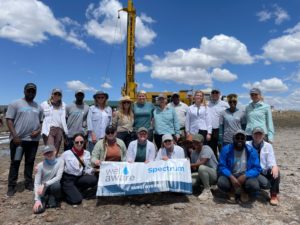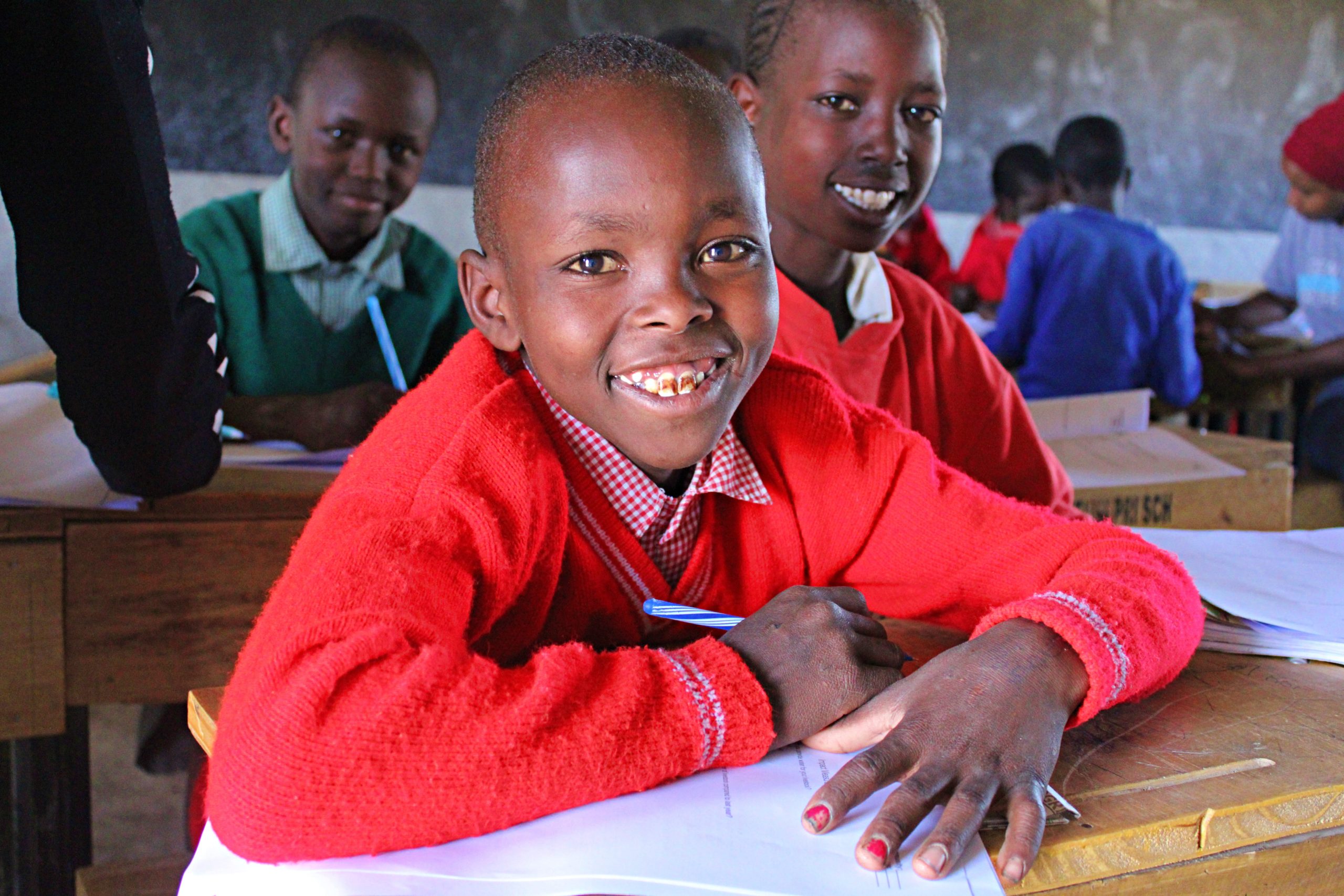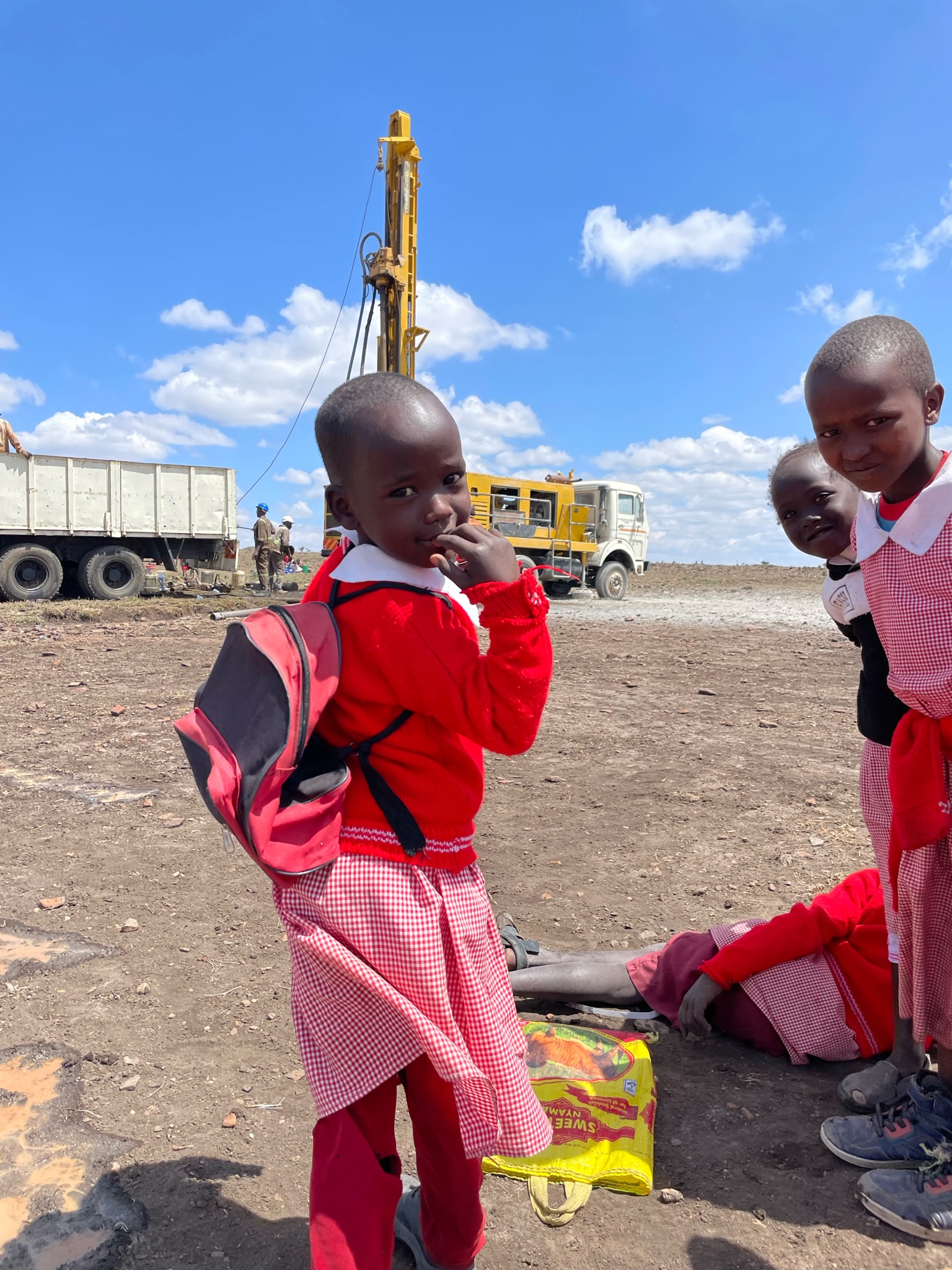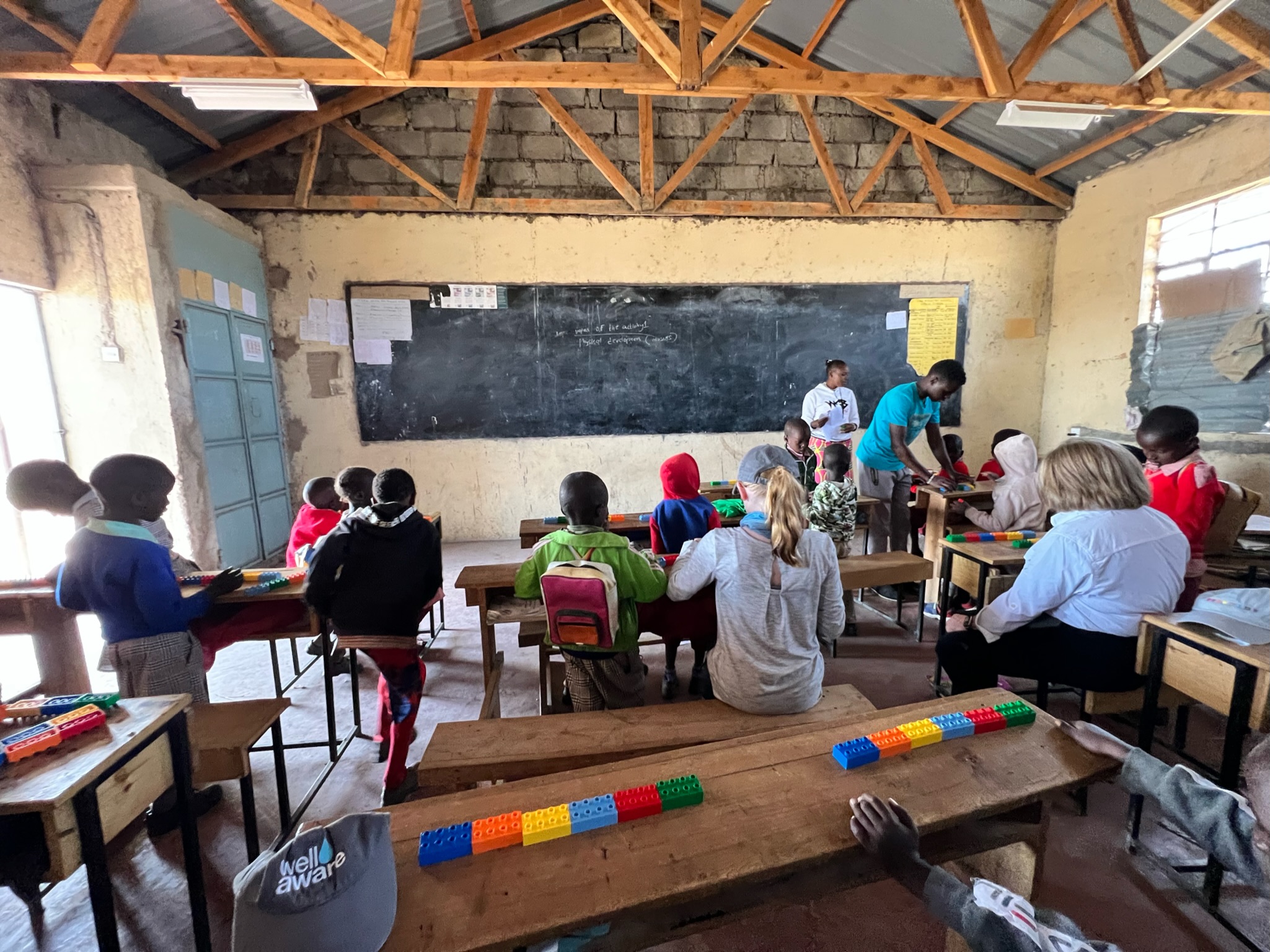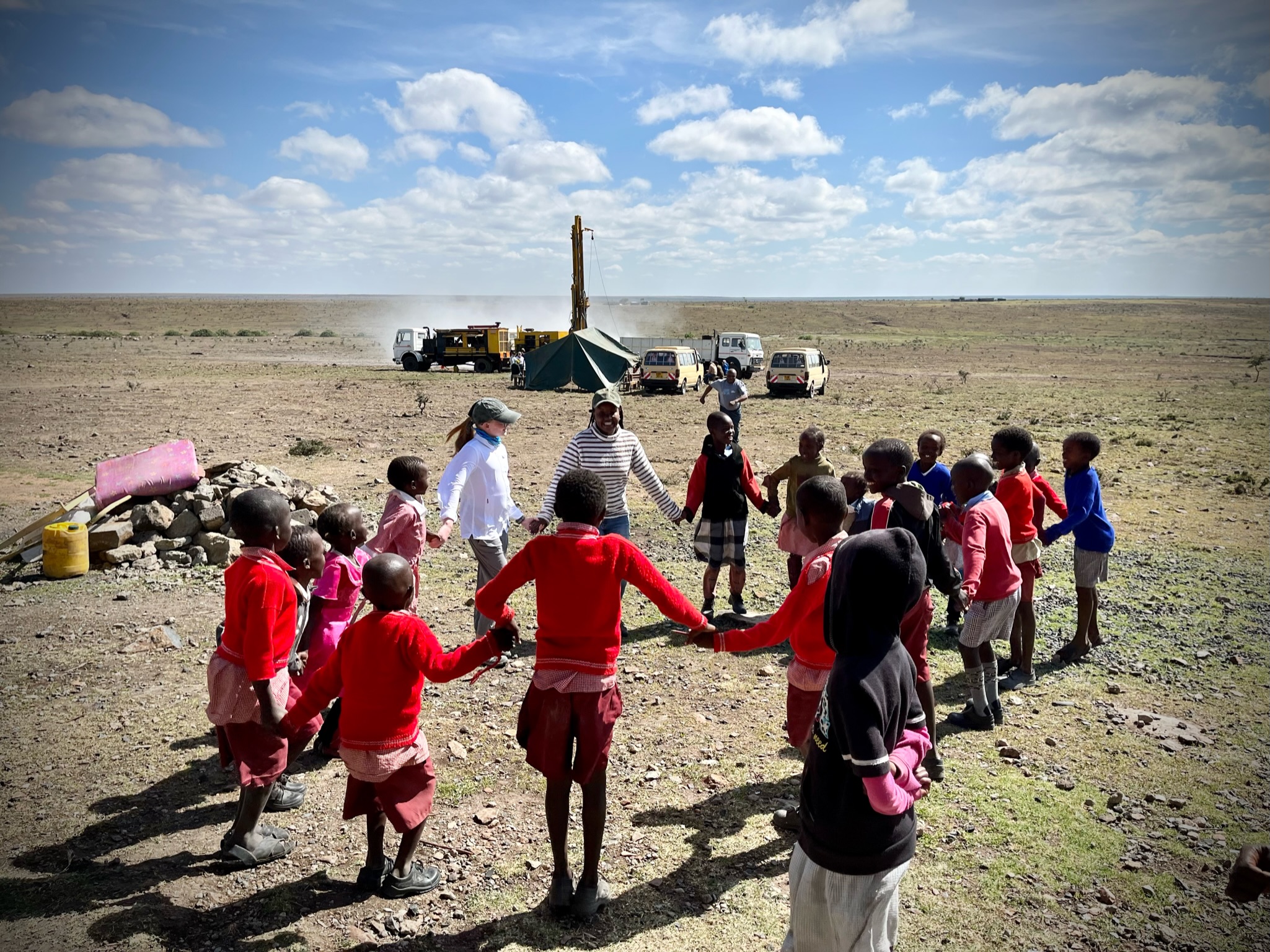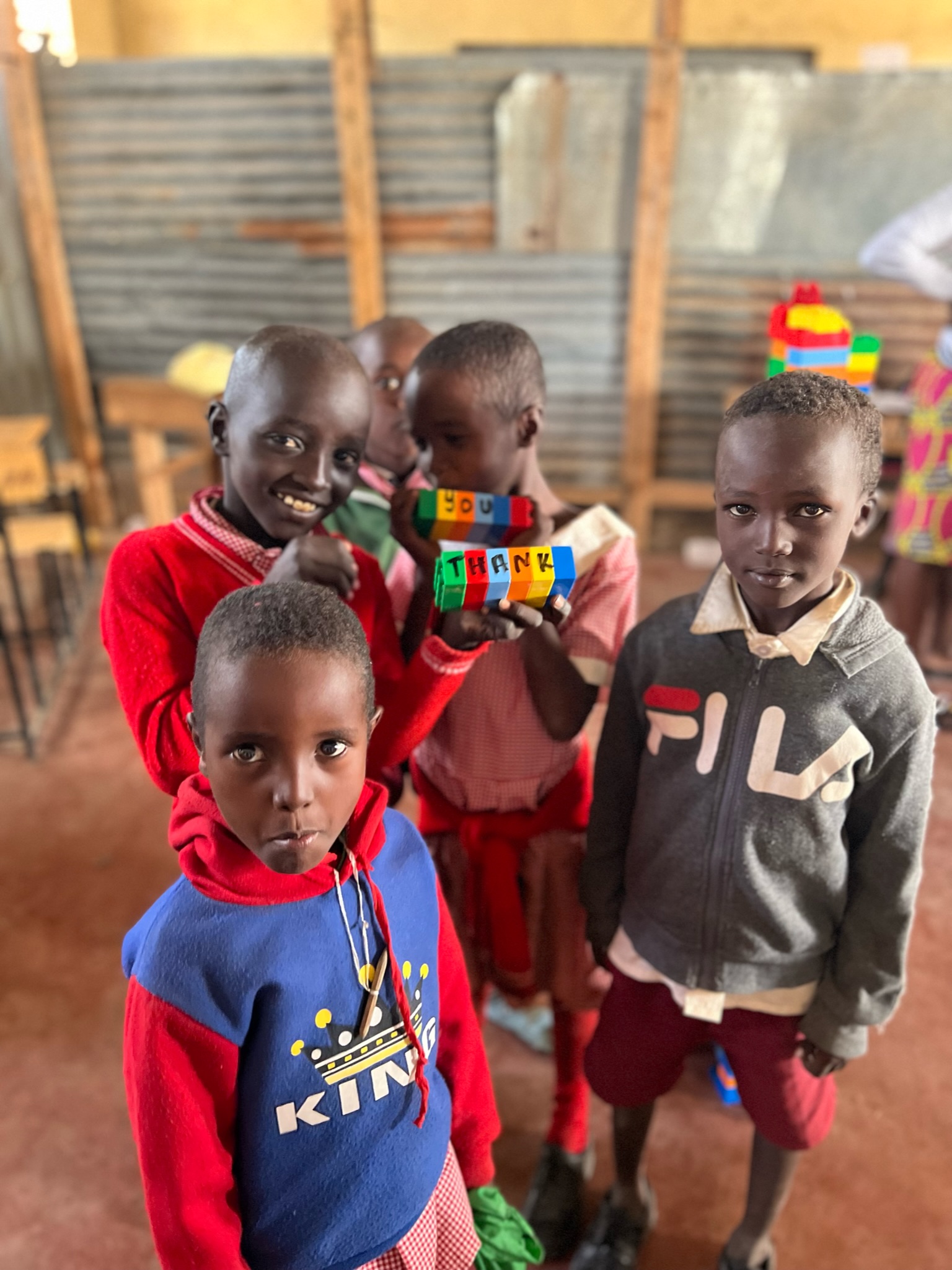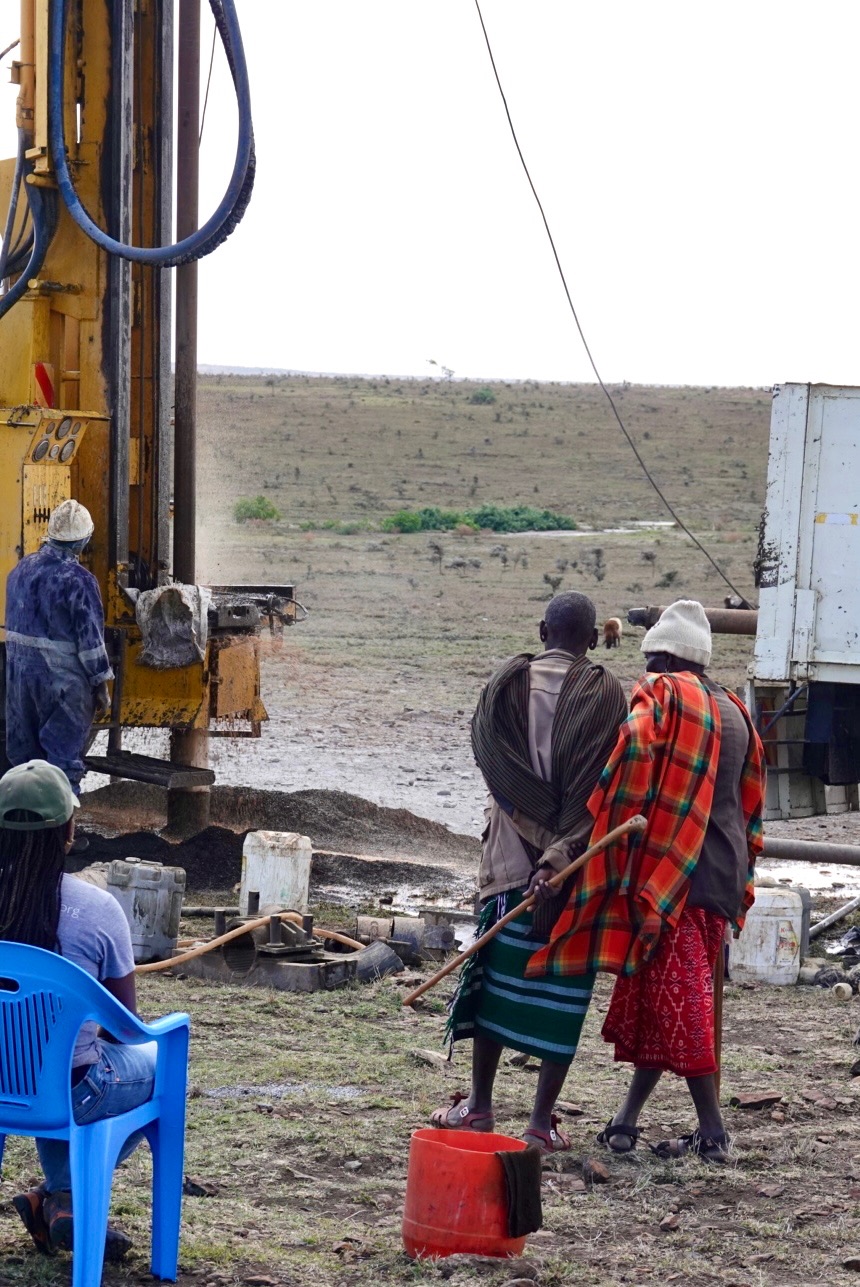Tangi Nyuesi, Kenya
A new way of life for Tangi Nyeusi
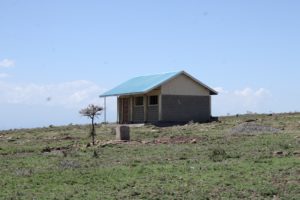
When we first visited Tangi Nyeusi Primary School in 2022, it was and still is the only school in a radius of 25 kilometers (or 15 miles) in its region. Situated within a game reserve, animals often crush into classrooms destroying laptops, books, and chairs. At that time, the school had only one block with 2 classrooms which were used by all of the 80+ students.
Lack of water led to food insecurity, and although the government provided some food donations, the school could not sustain a food program for the pupils. This also led to disruption of the school curriculum, with learning only taking place in the morning hours. Historically, pastoralists from Samburu and Turkana have been the main dwellers in Tangi. To date, the community doesn’t have toilets as members keep changing – one group after the other comes and goes, moving from place to place searching for water.
Previously, Tangi Nyeusi had a shallow hand pump well they used for water, but it broke down in 2018, so they have been walking to fetch drinking water from a dam or other surface water sources, some many kilometers away. Because of these contaminated sources, vomiting and diarrhea are common illnesses seen in Tangi Nyeusi.
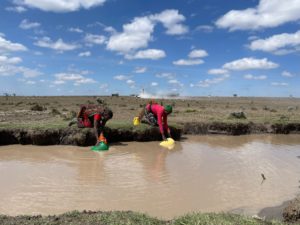
Over the past year, in anticipation of the new water well we broke ground on this past week, we’ve seen more people move closer to the school and construct more homes in anticipation of better lives. The school has already seen higher class attendance than recorded ever before. In the coming year, once the well is equipped and the clean water flowing, we know Tangi Nyeusi will experience the Ripple Effect, with population increases and more construction of permanent homes. We expect a change from nomadism and pastoralism to a more sedentary way of life – with agriculture and other trade-based economic activities. We also expect to see better health care with higher life expectancy. Families will have more than one meal per day and showers will be a lifestyle, not just a luxury, for the entire community of 800+ people.
“The biggest win will be for the boy child."
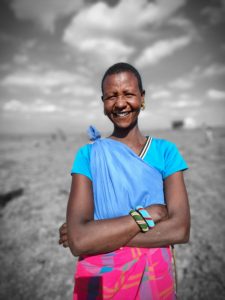
We spoke with Roselyn, a middle-aged woman from Tangi. She explained to me that boys will no longer sacrifice books and education for herding. Typically, in the pastoralist society, boys are picked at an early age to become herders and dedicate their lives to this duty. During severe drought, they move with their animals for thousands of miles across provinces in search of water and pasture.
“Some, just like the livestock, die along the way never to return home again,” continues an emotional Roselyn, who hopes this will be a tale of the past.
There are no guarantees in life, but my hope is that this community will embrace the new water system and use it to turn their lives around.
February 2024 Update– Before the implementation of the water system at Tangi Nyeusi Primary School, the lack of clean water hindered both education and health, with 66 boys and 82 girls, totaling 148 students. With your support, the school has seen transformative growth. Two years later, enrollment has surged to 167 boys and 123 girls, totaling 290 students—a remarkable 96.6% increase. This surge reflects a 21.2% increase in the number of boys and a 50% increase in the number of girls. These statistics underscore the vital impact of access to clean water on education and community well-being. Your continued support is essential in sustaining this positive momentum and ensuring a brighter future for these students.
The surge in girls’ enrollment at the school marks a significant milestone for the Tangi Nyeusi community, signaling a promising trajectory towards positive growth. In a region largely characterized by pastoralism, the community’s embrace of girls’ education reflects a profound shift in societal norms and values. This progressive mindset not only acknowledges the inherent value of educating girls but also recognizes their potential as agents of change and pillars of community development. By prioritizing girls’ education, the community is not only investing in the future of its youth but also laying the foundation for sustainable social and economic advancement. This inclusive approach fosters a more equitable and empowered community, where every individual, regardless of gender, has the opportunity to thrive and contribute meaningfully to collective progress.
Special thank you to our partner, Spectrum Brands, for making this project and this impact possible for the community of Tangi Nyuesi. And thank you to The Nobelity Project for their work enabling education for the community and Ol Pejeta Conservancy for bringing this project to us.
